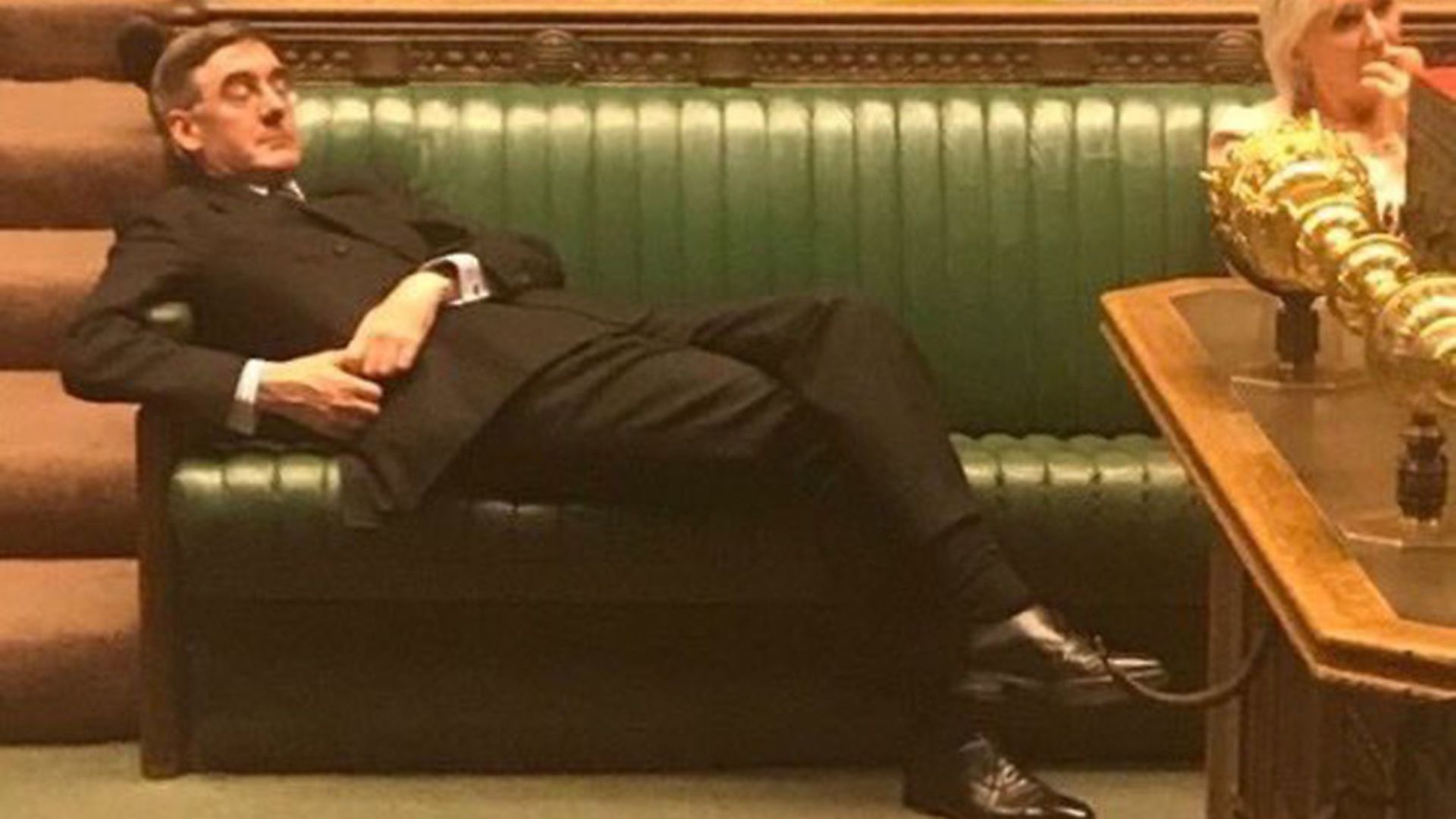
STEVE RICHARDS says the drama in Westminster is a distraction from a fundamental issue – Brexit is undeliverable and there are no answers
One historic convulsion follows another. One of the more striking eruptions is the formal schism that transforms the Conservative parliamentary party. Through all the fuming tensions, attempted acts of regicide and occasional defections, previous Conservative prime ministers have more or less kept their divided party together over Europe. After a few weeks in Number 10 Boris Johnson has triggered a split.
Compare with the recent, admittedly torrid, past. Enoch Powell left the party in 1974 in protest over the UK’s membership of the then common market, John Redwood challenged John Major in 1995, once more over Europe-related issues. Two Tory MPs defected to UKIP during David Cameron’s leadership. Nothing is remotely on the scale with what has happened under Johnson.
The removal of the whip after several Conservative MPs voted to clear the way for parliament to block no-deal is the most astonishing twist in a competitive field since he became prime minister. Two former chancellors, along with several other former ministers and some backbenchers, are no longer formal members of the Conservative parliamentary party.
Most of them had voted loyally for Theresa May’s deal and therefore have backed a version of Brexit. That is not good enough for the unyielding Johnson and his small entourage of Brexit revolutionaries.
In different circumstances they had already lost the Scottish leader and vote winner, Ruth Davidson. Several distinguished MPs have also announced they are standing down. The likes of Alistair Burt and Justine Greening exude integrity. They are leaving politics. The MP Phillip Lee is the latest to switch to the Liberal Democrats. Now Ken Clarke, Philip Hammond, Rory Stewart, Oliver Letwin and others have lost the whip.
These are not well known for their rebellious instincts. In his narrow strategic objective of wiping out the Brexit Party Johnson has ceased to lead a party that not so long ago, even under Margaret Thatcher, was a broad church.
Writing a new book on modern prime ministers I am struck by two recurring themes. Since the UK joined the EU in 1973 the issue of Europe has torn apart the two main political parties and made leadership a form of political hell.
Yet however intense the hell, all the prime ministers that ruled before David Cameron’s shallow decision to hold a referendum were committed to remaining in the EU.
Whatever the problems they recognised, or came to recognise, that leaving would be much worse. In reaching that conclusion they also worked arduously and unglamorously to keep their divided parties together. Johnson, not known for hard grinding work and an indifference to glamour, has kicked out some of his former colleagues with wider appeal than anyone in the cabinet.
Before the calamitous 2016 referendum, Britain’s membership of the EU has always been accompanied by wild turbulence and a prime ministerial assumption that the UK would not leave. As leader of the opposition in the early 1970s Harold Wilson voted against the UK joining the EU, but when he was prime minister he urged voters to support remaining during the 1975 referendum.
In government, Wilson understood that the opportunities of membership far outweighed the negatives. In reaching that judgement he managed with great skill to keep his ‘anti marketeers’ on board. His successor, James Callaghan, had a similar experience. Callaghan had been more of a Eurosceptic than Wilson but as foreign secretary and prime minister became committed to the UK’s membership, forming a close relationship in particular with the German chancellor, Helmut Schmidt. He too kept the formidable opponents of membership on side. They included Tony Benn, Michael Foot and others with huge followings in the Labour party.
Margaret Thatcher became increasingly hostile to the EU but never once contemplated, as prime minister, the possibility of leaving. She did the opposite, signing treaties and developing the single market. Her senior ministers were passionate pro-Europeans: Michael Heseltine, Ken Clarke, Douglas Hurd. Even as she became hostile to parts of the European project she did not seek to remove those ministers from her cabinet let alone her party.
John Major twisted and turned in an attempt to appease some of his Eurosceptics but it did not cross his mind to reject the Maastricht Treaty that caused him so much torment, let alone leave the EU. As he twisted and turned with growing despair he kept his party together.
Tony Blair and Gordon Brown had blazing rows about the euro but were committed to UK membership of the EU. So was David Cameron. Not for a moment did he and George Osborne consider departure, even as Cameron made his blundering moves towards the current crisis.
These prime ministers were very different characters and with views that spanned a considerable range on the political spectrum. All of them in different ways were opposed to leaving the EU and avoided big formal splits when in government.
Johnson pursues the opposite course. He is resolved to take the UK out of the EU by October 31 and is purging his party of those that disagree.
As he does so, virtually the sole focus is on the procedural battles that Johnson is fighting and the divisions that follow. They matter greatly and are part of the post referendum pattern. Theresa May sought to bypass MPs. Johnson seeks to do so even more even more blatantly. As he makes his move he poses the deadly juxtaposition, ‘parliament versus the people’. The juxtaposition is both dangerous and preposterously misleading, not least because it was the people that elected the MPs to the Commons in the first place.
Yet in a way that is almost convenient for Johnson, the procedural clashes obscure a deeper reality. Step back from the parliamentary drama, the near- revolutionary instincts of an unyielding government, and there is a much clearer picture.
The picture relates to Brexit and nothing else. It is Brexit that is the problem. It cannot be delivered without causing deep economic harm and risking the break-up of the UK. This picture is virtually hidden.
Consider the furore of recent days. Was Johnson’s plan to prorogue Parliament legal? How dare he threaten to withdraw the whip to senior Tories? Can he hold and win a general election? Can parliament assert its authority over the revolutionaries that are in Number 10? All are urgently valid questions, but they obscure the deeper problems in relation to pulling out of the EU while also being symptoms of the impossible project that is Brexit. Attempts to deliver Brexit in any form tears apart parties and challenges constitutional orthodoxies.
The divisions and the legal disputes are the story. Whether it is sensible to leave the EU becomes the forgotten question.
Forget for one moment the eruptions in the Conservative party and consider how Johnson delivers Brexit in a way that does not cause bleak convulsions for the UK. Listen to senior ministers and there are no answers.
Johnson claims that his Brexit negotiations are going well and that he is hopeful that he will get a deal. He makes the assertion without any evidence that the EU will move in the way he is adamant it must.
Johnson has no credible alternative plans to prevent a hard border in Ireland. If he had them he would be parading them triumphantly and the EU would seize them gratefully. The EU does not want the UK to be in the privileged position of being in the customs union while outside the EU. Only the hardline Brexiteers regard the prospect of being in the customs union as a ‘trap’.
On other matters, the governor of the Bank of England, Mark Carney, could not have been clearer when he spoke on the Today programme last month. He was trying to be as helpful as possible to the government, aware he would be slaughtered if he suggested a no-deal Brexit could have alarming consequences. But he could only speak objective truths. Firms dependent on the supply chain risk no longer being “economically viable” on November 1, if the UK leaves without a deal on October 31. Food prices are bound to rise and there will also be shortages.
Of course any government can take a country over a cliff without coming up with the answers to the substantive problems that go well beyond the Irish border and supply chains. This is what no-deal amounts to, leaving without answering the unanswerable questions.
To some extent this is what the historic procedural wrangling is about too, avoiding the impossible questions to which there is only one feasible answer: To remain in the EU.
That is also the only route that delivers on what is supposed to be the voters’ great wish: “Just get on with it”. No-deal or a ‘deal’ will not get on with it. In those circumstances the impossible questions will be with us for decades to come.
The current drama is darkly compelling. Parliament vs Executive! A coup! An early election! We must leave by October 31, do or die! Betrayal! The underlying issues about borders, supply chains, labour shortages in public services and elsewhere, security co-ordination and much more besides are submerged. The Conservative party is being remade in front of our eyes. The constitution creaks weakly. We know this. We know none of the answers about Brexit in any form. We do not know them because they do not exist.
Steve Richards’ new book The Prime Ministers – Reflections on Leadership from Wilson to May is published this week by Atlantic










